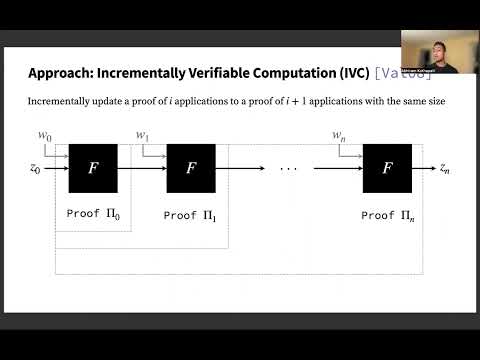CryptoDB
Nova: Recursive Zero-Knowledge Arguments from Folding Schemes
| Authors: |
|
|---|---|
| Download: | |
| Presentation: | Slides |
| Conference: | CRYPTO 2022 |
| Abstract: | We introduce a new approach to realize incrementally verifiable computation (IVC), in which the prover recursively proves the correct execution of incremental computations of the form y=F^{(\ell)}(x), where F is a (potentially non-deterministic) computation, x is the input, y is the output, and \ell > 0. Unlike prior approaches to realize IVC, our approach avoids succinct non-interactive arguments of knowledge (SNARKs) entirely (and arguments of knowledge in general). Instead, we introduce and employ folding schemes, a weaker, simpler, and more efficiently-realizable primitive, which reduces the task of checking two instances in some relation to the task of checking a single instance. We construct a folding scheme for NP and show that it implies an IVC scheme with improved efficiency characteristics: (1) the "recursion overhead" (i.e., the number of steps that the prover proves in addition to proving the execution of F) is a constant and it is dominated by two group scalar multiplications expressed as a circuit (this is the smallest recursion overhead in the literature) and (2) the prover's work at each step is dominated by two multiexponentiations of size O(|F|), providing the fastest prover in the literature. The size of a proof is O(|F|) group elements, but we show that using a variant of an existing zkSNARK, the prover can prove the knowledge of a valid proof succinctly and in zero-knowledge with O(\log{|F|}) group elements. Finally, our approach neither requires a trusted setup nor FFTs, so it can be instantiated efficiently with any cycles of elliptic curves where DLOG is hard. |
Video from CRYPTO 2022
BibTeX
@inproceedings{crypto-2022-32235,
title={Nova: Recursive Zero-Knowledge Arguments from Folding Schemes},
publisher={Springer-Verlag},
author={Abhiram Kothapalli and Srinath Setty and Ioanna Tzialla},
year=2022
}

